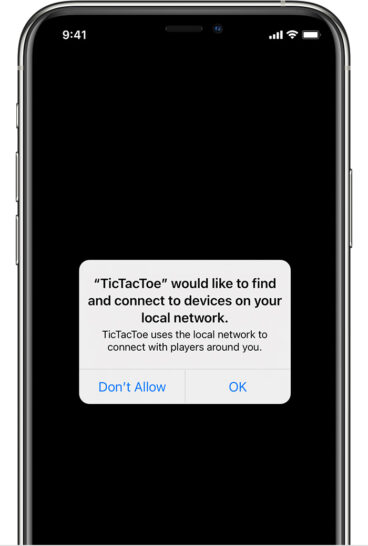Think twice before you click ‘OK’ on this iPhone pop-up
February 22, 2021
By Kim Komando
Many of those free apps on your device are free for a reason. You’re the product. Instead of charging a fee, apps will collect data on you to send you targeted ads. It’s a way to generate revenue without fees.
The thing is, most of the time, when an app tracks you, it’s because you’ve permitted it to do so. This happens when you install an app and agree to its terms and conditions, normally in the fine print. Tap or click here to see which apps collect the most data.
Speaking of permissions, have you noticed more apps asking to connect to your local network recently? It makes sense for a music streaming service to connect to your network and search for connected speakers, but not all apps need this type of access. Keep reading to find out when it’s ok to give an app access to your network and how to block those that don’t need it.
Why do apps need to find other devices?
You may have noticed that since you updated your Apple device to iOS 14, more apps want to connect to your iPhone. Connected to a Wi-Fi network, you might see a message that says a particular app wants to find and connect to devices on your local network.
It’s not a glitch in your system, and it’s not spyware. On the contrary, it is to protect your privacy. Apple has been a vocal advocate for user safety and online protection. This is just one of the many steps where Apple gives you the power to control your data.
There are many reasons why a specific app would want to find and connect to other devices. Using the example of Google’s virtual assistant, the app would work better if it knew how many other speakers or hubs are on the network.

That would make setting up a speaker group much easier, and it will give you the correct information wherever you are in the house. Another example is an iPhone video game with multiplayer capabilities.
The app would like to know if there are any other players on the local network, making the multiplayer connection seamless. With the iOS 14 update, instead of automatically searching for devices, all apps will ask for permission first.
“Apps that access your local network can collect information about nearby devices in order to determine which networks you join and when. This information could be used to create a profile of you. With iOS 14 and iPadOS 14, any app that wants to interact with devices on your network must ask for permission the first time it tries to browse your local network,” Apple explained in a blog post.
The exact reason why an app needs local network access will vary, and the developer determines that. An instant messenger like WhatsApp would need to have local network access to make use of AirDrop to share files. Tap or click here to find out how to use AirDrop.
Here’s how to grant or revoke local network access
Apple advises that you shouldn’t grant local network access to an app if it isn’t clear enough why it needs to do so. You can revoke or grant access to an app that you have already configured. Here is how to grant or revoke local network access:
- Tap Settings.
- Tap Privacy.
- Scroll down and tap Local Network.
Here you will see a list of apps on your iPhone that has asked for local network access. The slider will be green if it was granted and will be grey if denied or revoked. You can go through the list and toggle the apps you want to change.
But is it necessary?
Well… that depends on how you use certain apps. WhatsApp, as an example, will work perfectly fine for texting. But as soon as you deny the app access to your local network in settings, voice calling through WhatsApp will not work.
As pointed out earlier, the need for access will be different for each app. The only way for you to find out why an app requests access is to go to the developer’s website for answers. And even then, they might be vague.
When Facebook CEO Mark Zuckerberg appeared before U.S. Congress in 2018, he confirmed the app collects a wealth of information on you. It collects your phone’s signal and stores any data about Bluetooth connections or nearby access points.
Zuckerberg said that the app needed access to a local network to monitors devices around its users or on the same network. This is done so Facebook “can do things like help users stream a video from their phone to their TV.”
Keep Reading
10 smart tech tricks you’ll wish you knew sooner
Smarter Siri, iOS 14, more privacy and everything else Apple just announced
https://www.komando.com/tips/apple/apps-connected-to-local-network/